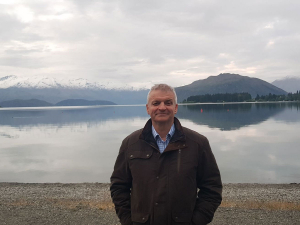OPINION: A recent article suggested that “seven in 10 men would rather clean a toilet than go to a doctor”.
Further, “when men do go to the doctor, they’re surprisingly likely to lie about their symptoms”.
On the face of it, this does seem just a bit silly and even irrational. Why would things be that way? However, I can understand it because I used to be like that. But not so much now, as I’ve learned a tough lesson in the reality of relying on a she’ll-be-right attitude.
I think we men need to snap out of whatever dreamland we are in that suggests we don’t need to pay attention to our bodies. Our bodies hang around all day and all night. Bodies are 24/7. We just can’t get rid of them. We need to start using our brains a bit better.
Maybe we need to treat our bodies like our cars. Cars are also a physical thing that we have, and drive with our brains, but often treat far better.
With our own body, just like our car, why not fill it up with the right fuel, take it for a drive so its motor doesn’t get rusty, keep it clean and tidy, cut any rust out before it spreads, and get that warrant of fitness, just to make sure all the parts are in good running order – and we don’t have a break down when it’s inconvenient to us and our families?
We are happy to pay for the person at the garage to look under the bonnet, why not a doctor? A simple check-up and then we can carry happily on. Or if an issue arises, pay a bit of attention to those things that we can nip in the bud before they become a significant breakdown issue and we can’t drive our bodies as normal.
The earlier we get onto any issues the better. Leaving things until later can cost a lot – like your life.
I didn’t get a prostate-specific antigen (PSA) test when I was 50 on my doctor’s advice. For various reasons, it wasn’t another four years until I did get a PSA test. When I got that test, following a few further tests and scans, I was diagnosed with prostate cancer.
Unfortunately, it had spread outside my prostate into my lymph system. This meant I needed six months of chemotherapy, two months of radiotherapy and a couple of years on hormone therapy to stay alive; my inconvenient truth.
The reason I am mentioning this is that if I’d had that PSA test earlier, there is no doubt my health outcomes would have been better. It’s not complicated. Early detection of cancer means you live longer. “She’ll be right” can simply kill you early. And dead isn’t a great career choice, or that helpful to your family.
About 650 men or so die of prostate cancer every year. That’s about 2,000 men since the start of the Covid-19 outbreak. There is no doubt some of this death may have been avoided by men paying as much attention to their bodies as their cars – and getting that Warrant of Fitness with their doctor as well as the garage.
And that’s only one health issue. There are plenty of things that can go wrong with a bloke’s body (and mind). Early detection and intervention can massively improve health and lifestyle outcomes.
We need to take responsibility for our own health. We owe that to our families, but most importantly, we owe it to ourselves.
• Conor English is chairman of Agribusiness NZ, director of Silvereye Communications, and president of E Sport N.



















